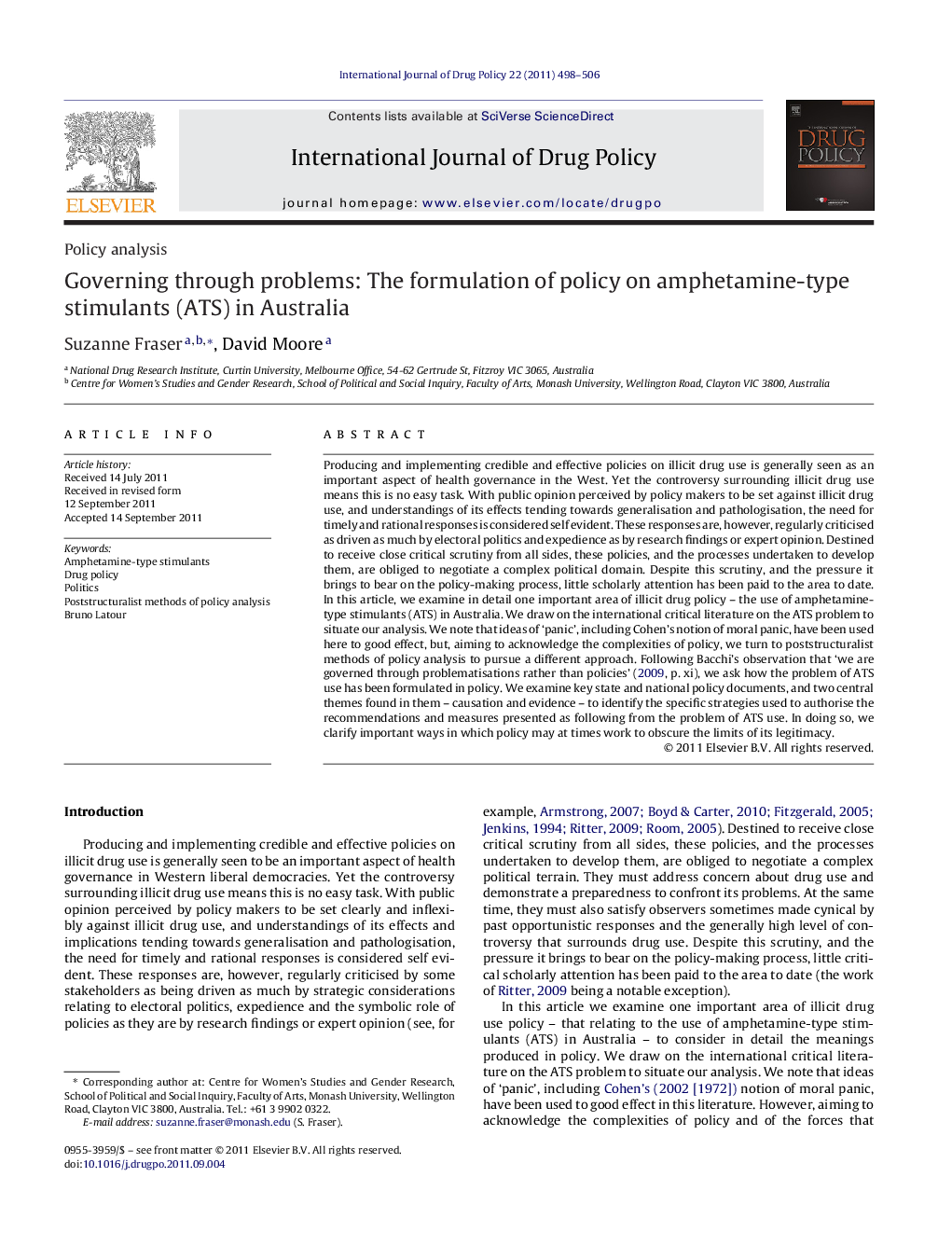| کد مقاله | کد نشریه | سال انتشار | مقاله انگلیسی | نسخه تمام متن |
|---|---|---|---|---|
| 1075557 | 1486310 | 2011 | 9 صفحه PDF | دانلود رایگان |

Producing and implementing credible and effective policies on illicit drug use is generally seen as an important aspect of health governance in the West. Yet the controversy surrounding illicit drug use means this is no easy task. With public opinion perceived by policy makers to be set against illicit drug use, and understandings of its effects tending towards generalisation and pathologisation, the need for timely and rational responses is considered self evident. These responses are, however, regularly criticised as driven as much by electoral politics and expedience as by research findings or expert opinion. Destined to receive close critical scrutiny from all sides, these policies, and the processes undertaken to develop them, are obliged to negotiate a complex political domain. Despite this scrutiny, and the pressure it brings to bear on the policy-making process, little scholarly attention has been paid to the area to date. In this article, we examine in detail one important area of illicit drug policy – the use of amphetamine-type stimulants (ATS) in Australia. We draw on the international critical literature on the ATS problem to situate our analysis. We note that ideas of ‘panic’, including Cohen's notion of moral panic, have been used here to good effect, but, aiming to acknowledge the complexities of policy, we turn to poststructuralist methods of policy analysis to pursue a different approach. Following Bacchi's observation that ‘we are governed through problematisations rather than policies’ (2009, p. xi), we ask how the problem of ATS use has been formulated in policy. We examine key state and national policy documents, and two central themes found in them – causation and evidence – to identify the specific strategies used to authorise the recommendations and measures presented as following from the problem of ATS use. In doing so, we clarify important ways in which policy may at times work to obscure the limits of its legitimacy.
Journal: International Journal of Drug Policy - Volume 22, Issue 6, November 2011, Pages 498–506